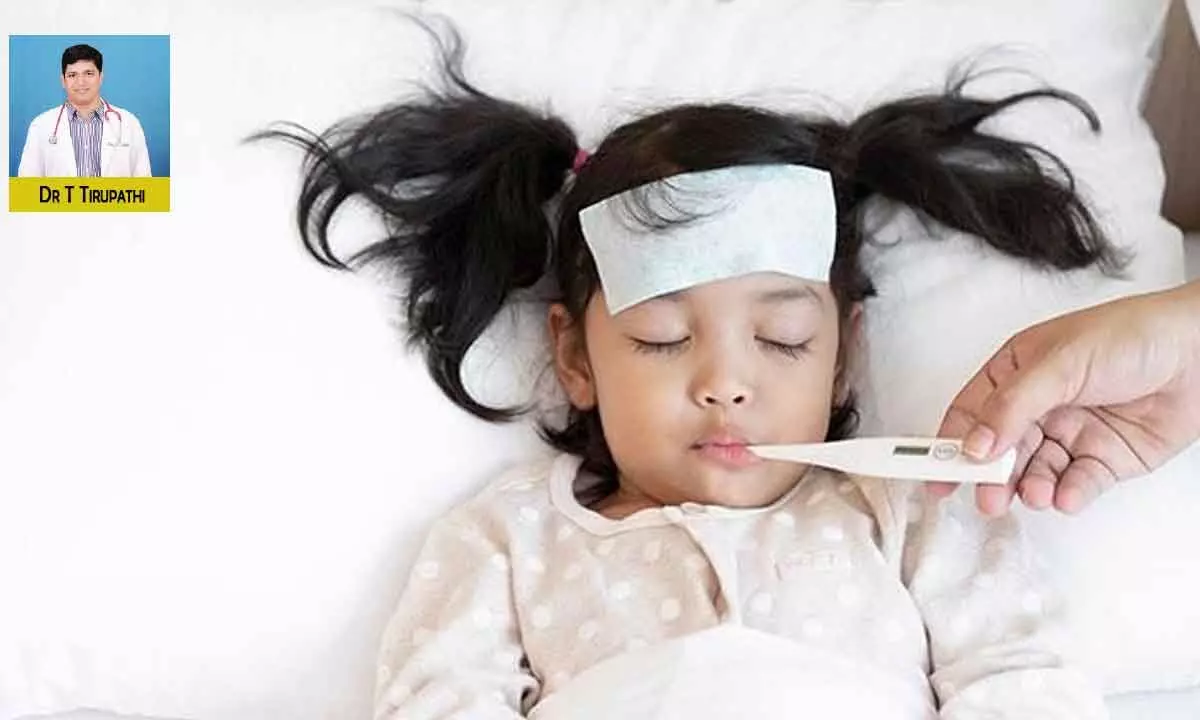Interesting health facts on Dengue

Dr T Tirupathi, MD, Pediatrics from Sunrise Children’s Hospital, Visakhapatnam speaks about Dengue and its symptoms
Dengue or break bone fever is a vector-borne disease that is transmitted by female Aedes mosquito carrying the dengue virus. When this mosquito bites a healthy person, the virus gets transmitted into the body. Aedes mosquito is identified by the black and white stripes on their bodies and legs. Symptoms include high grade fever, severe headache, abdominal pain, muscle and joint pains. In severe cases, the patient may vomit blood or pass fresh blood in stools.
• Dengue cannot spread via human contact, but only when the person is bitten by a carrier mosquito, the female Aedes mosquito. This mosquito is known to bite during day time and its favorite biting spots are below the elbow and the knee.
• Dengue is not fatal if identified early and managed properly. Although there is no specific treatment for dengue, early intervention and proper medical care brings down the fatality rates to less than 1%.
• Dengue is found in most parts of the world, but more cases of dengue are reported in tropical and sub tropical climates. Severe dengue is one of the leading causes of serious illness and death among children in some Asian and Latin American countries.
• Severe dengue, also known as Dengue Hemorrhagic Fever is caused by a certain strain of the dengue virus. It causes the platelet count to drop drastically, resulting in severe bleeding and a drop in blood pressure. This can eventually lead to shock and death.
• When a pregnant woman is infected with dengue during childbirth, she can pass on the infection to her newborn baby.
• When infected with dengue the patient must not take aspirin or other painkillers. This is because dengue fever causes reduction in platelet count and results in thinning of blood. Aspirin is also known to have the same effect on the platelet count and can hasten the lowering of the same in a patient with dengue.
• The best way to manage dengue at home is to bring down (reduce) the fever and keep the patient well hydrated with plenty of water and electrolytic fluids. Nutritious food is also recommended to reduce the severity of dengue.
• Emergency care of dengue hemorrhagic fever includes intravenous hydration, pain management, electrolyte therapy, blood transfusions, oxygen therapy and careful monitoring of blood pressure levels.
• Prevention of dengue fever requires control or eradication of the mosquitoes carrying the dengue virus. The Aedes mosquito is known to breed in still and stagnant water. Certain plants like Neem tree and Citronella are known to be natural mosquito repellents. Frogs and larvivorous fishes feed on mosquito larvae and can be introduced into ponds and lakes.
• There is no known vaccine to protect against dengue fever. In India a person who has been infected with dengue can get the fever again when infected by other strains of the dengue virus.
The signs and symptoms that should be looked for are:
• Severe pain in the abdomen
• Persistent vomiting
• Bleeding in the skin (appearing as small red or purplish spots)
• Nose bleeds
• Bleeding from gums
• Passage of black stools like coal tar
• The most dangerous type of dengue is Dengue Shock Syndrome (DSS). It is recognized by signs such as:
• Excessive thirst
• Pale and cold skin (due to very low blood pressure)
• Restlessness
• Feeling of weakness.
(Ph: +91 9908444344, 9550377799 Mail: [email protected])









